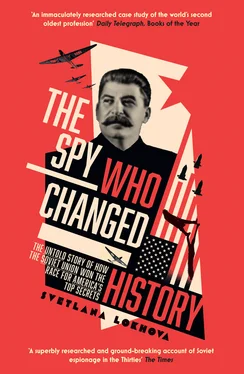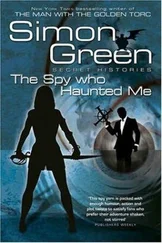• • •
Blamed for causing the Depression, Hoover won only 39.7 per cent of the popular vote in the 1932 presidential election, a dismal result, and in 1933 Franklin Delano Roosevelt replaced him as President. Roosevelt’s reforms derailed the leftward political momentum in the US. A stream of radicals were hired into the federal government to enact depression relief measures adopted from their leftist agenda. Faith in the vitality of American capitalism revived with the economic upturn. Roosevelt’s New Deal aimed to provide support for the millions of unemployed, to grow the economy and to enact reform to prevent a repeat of the financial crisis. It was attractive for some Communists who, as members of the Democratic administration, could be anti-fascist fighters, defend the cause of labour and promote the aims of the Communist Party and the Soviet Union while pursuing a government career with a good salary. It was no wonder at the time that Soviet spy rings flourished unhindered at the heart of the American government. But New Deal reform did not extend much beyond the end of the recession in 1937, when urgent plans for war displaced domestic concerns. And as the vision of an imminent proletarian revolution was eclipsed by the war shadows, the slow journey back to a belief in democracy quickened into a stampede. Patriotic fervour swamped the radicalism of the thirties. Conservatives still depict the Red Decade as an ugly spectacle of rampant subversion in America.
One clear demonstration of the broad appeal of the radical message at the time, but not of the socialist name, was given by the writer and politician Upton Sinclair. Having founded EPIC (End Poverty In California) to pursue a solution more radical than Roosevelt’s New Deal, Sinclair came close to becoming Governor of California in 1934. He wrote after his defeat that ‘the American People will take Socialism, but they won’t take the label. I certainly proved it in the case of EPIC. Running on the Socialist ticket, I got 60,000 votes and running on the slogan to “End Poverty in California” I got 879,000. I think we simply have to recognize the fact that our enemies have succeeded in spreading the Big Lie. There is no use attacking it by a frontal attack; it is much better to out-flank them.’ 16
Sinclair was a lifelong Socialist who had become frustrated with the New Deal’s inability to end the Depression at a stroke. Rather than putting the unemployed on relief, Sinclair proposed, via EPIC, to put them to work within a state-organised ‘production-for-use’ economy distinct from the capitalist marketplace. Under his scheme, the state would take over idle farms and factories, allowing the jobless to grow their own food or produce clothing and other goods. Any surplus could be traded, through a system of barter, only for other goods produced within the system. Considered the front-runner in the election, Sinclair was subjected to intense attacks from both Republicans and Democrats as ‘a communistic wolf in the dried skin of the Democratic donkey’. 17
• • •
The Soviet students tripping down the gangplank in the summer of 1931 arrived with fixed expectations and preconceived ideas about America. The views of Shumovsky and his fellow Soviet students were based on their own political ideology, reinforced by selective imported left-wing reading and popular culture including movies. Long before the Revolution, the idea of America had exercised a profound fascination for Russians, and not just for its technological successes. There was a hungry market in Russia for American movies and cheap novels about cowboys and gangsters. 18An unusual import was the staging of selected American dramas. Several American plays were produced in Moscow, notably The Front Page – famously adapted in 1940 for the screen as His Girl Friday starring Cary Grant and Rosalind Russell – which was rechristened Sensations for a Communist audience . Giving theatre-going Muscovites a further taste of the life and times of the windy city was a staging of Chicago , a ‘tale of America’s foremost big gun and bullet city’ depicting the life of Roxie Hart and today more renowned as a musical. Hollywood movie styles inspired domestically produced Soviet films, which often emulated the style and stunts of Harold Lloyd, Buster Keaton and the Keystone Kops in delivering their ideological message. In one popular movie, The Extraordinary Adventures of Mr. West in the Land of the Bolsheviks , 19an American philanthropist, fearful for his own safety having heard lurid tales of bloodthirsty Communists, brings a cowboy to Moscow as a personal bodyguard. The cowboy, played by a Moscow circus clown, is a carbon copy of Keaton, while Moscow’s finest do a passable impression of the Keystone Kops. The philanthropist falls victim to conniving White Guards spinning impossible tales such as that the iconic Bolshoi Theatre was dynamited by the Communists. Mr West returns to the US, and the arms of his relieved wife, knowing that tales of bloodthirsty philistines destroying Moscow are untrue. As the students arrived in America, like Klivans they felt the need to tackle prejudices about the new Russia similar to those held by Mr West and many Americans.
Two Russian satirists, Ilf and Petrov, summed up Russian expectations of arriving in depression-hit New York:
the word ‘America’ has well-developed grandiose associations for a Soviet person, for whom it refers to a country of skyscrapers, where day and night one hears the unceasing thunder of surface and underground trains, the hellish roar of automobile horns, and the continuous despairing screams of stockbrokers rushing through the skyscrapers waving their ever-falling shares. 20
They believed they would find a culture of exploitation in America and that ‘the rich people not only had all the money’ but ‘the poor man was down, and he had to stay down’. 21They had devoured in Moscow the available books on America, mostly those of socialist writers Sinclair and Dreiser about the current state of the US. Without another source of knowledge, they believed them to be the gospel truth. The students expected to find ‘a population, low-class and mostly foreign, hanging always on the verge of starvation and dependent for its opportunities of life upon the whim of men every bit as brutal and unscrupulous as the old-time slave drivers; under such circumstances, immorality is exactly as inevitable, and as prevalent, as it is under the system of chattel slavery’. 22
As devout Communists, they did not expect a warm welcome on American soil but to be confronted with cold shoulders and suspicion. And they soon learned that outside the narrow circles of intellectuals and émigrés they needed to be careful when discussing Communism. On their travels, they discovered that the deeply conservative soul of America was rooted in traditional churchgoing communities that were suspicious of new-fangled foreign ideas.
Officially, a man will never be forced out of his job for his beliefs. He is free to hold any views, any convictions. He’s a free citizen. But let him try to praise communism – and something like this happens, he will just not find work in a small or big town. He will not even notice it happening. People who do it, do not believe in God but go to church because it is indecent not go to church. As for Communism, that is for Mexicans, Slavs, and black people. It is not an American thing. 23
Russians were not yet an urbanised people, and they knew that the real America was to be discovered in its myriad small towns and villages, not its cities. Soviet visitors loved taking road trips, driving across America’s incredible highway system in the freedom of a car. On their journey they discovered in equal measure much to admire and amuse:
Читать дальше












